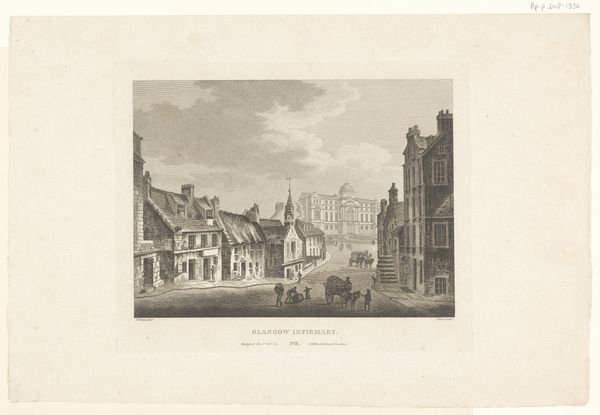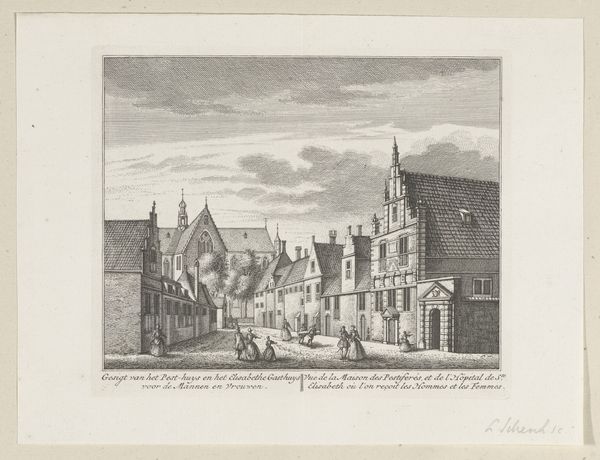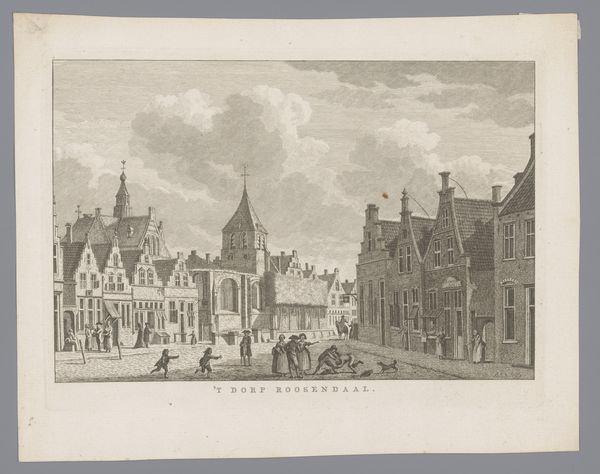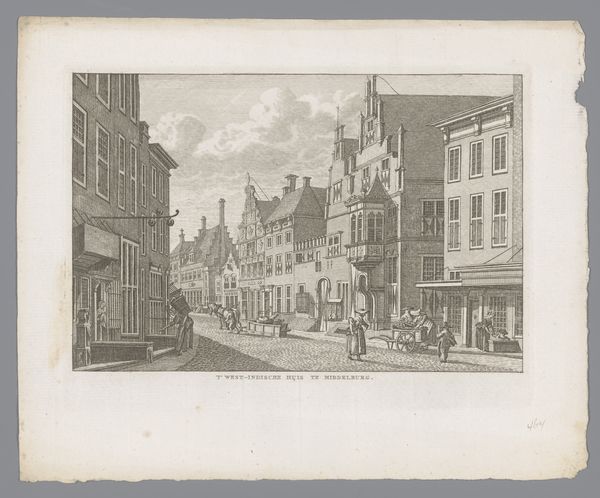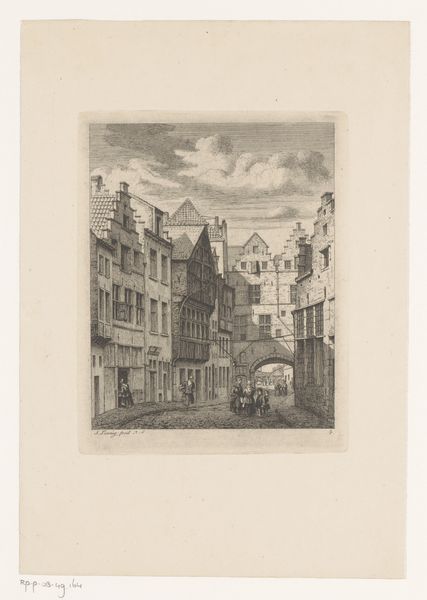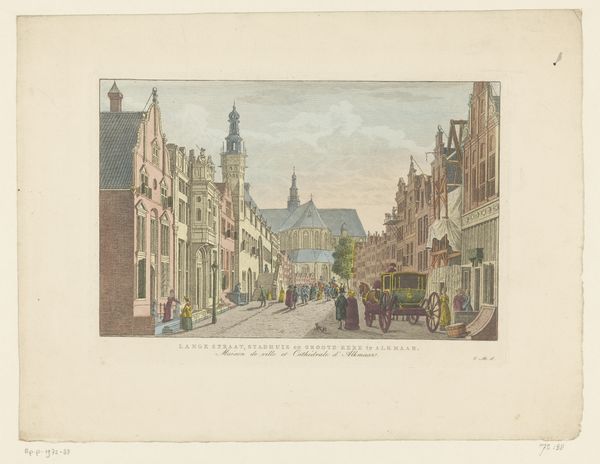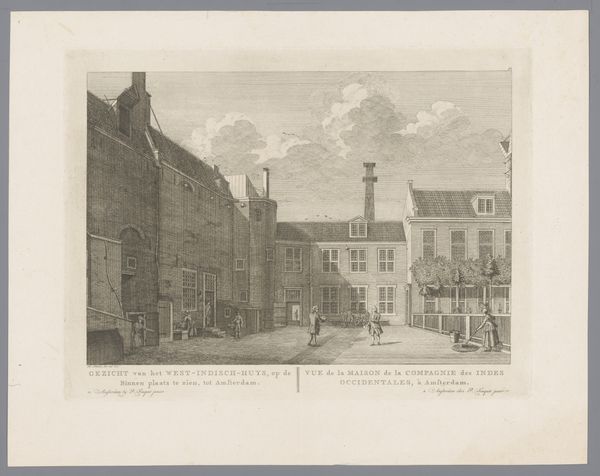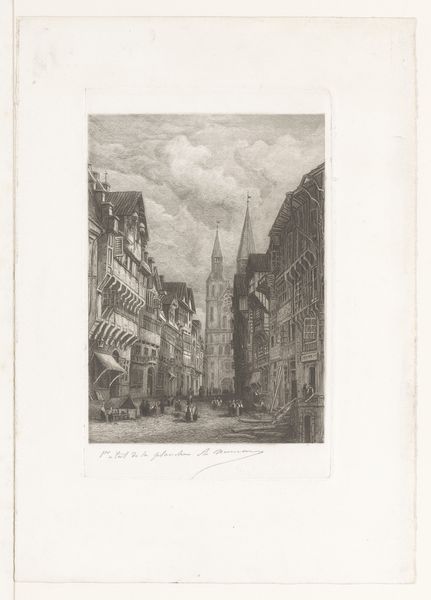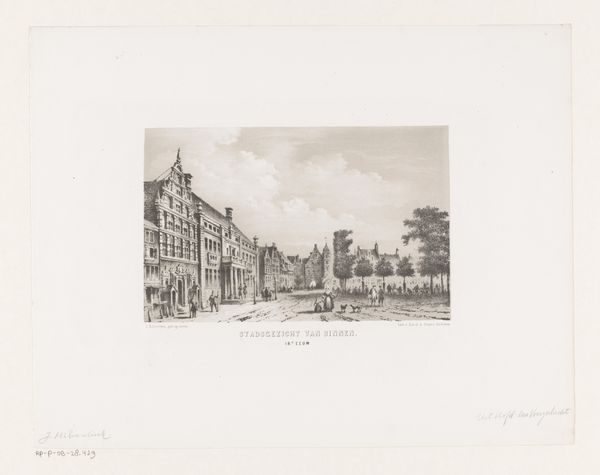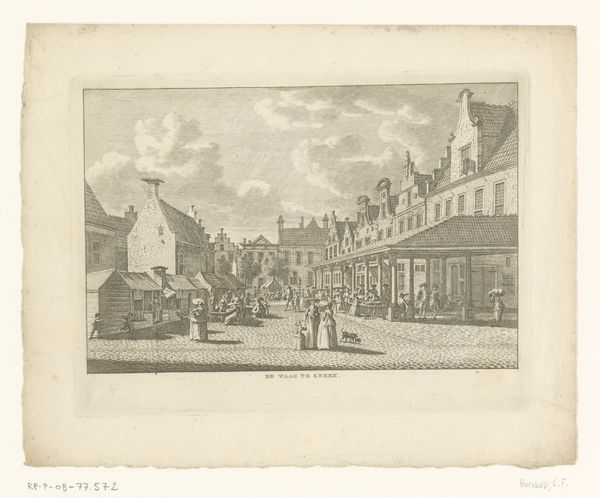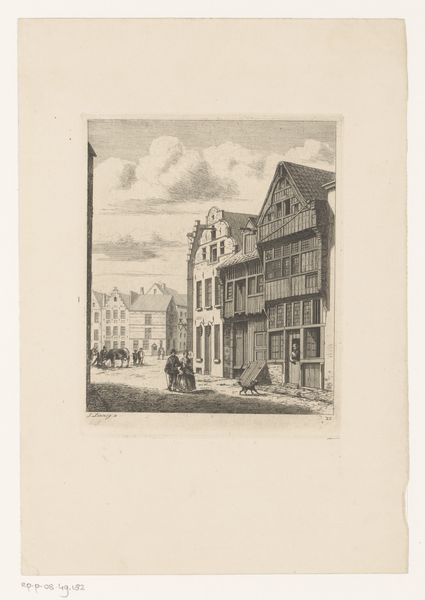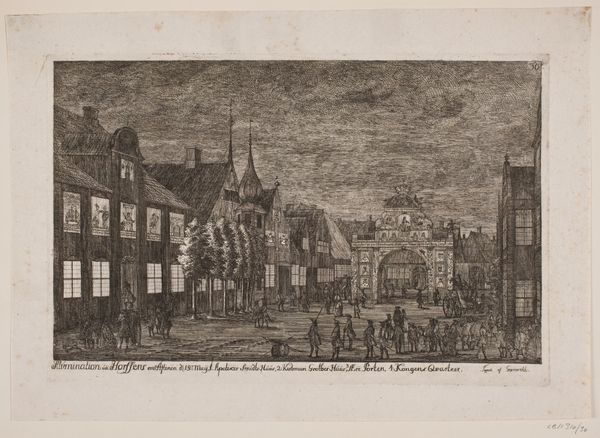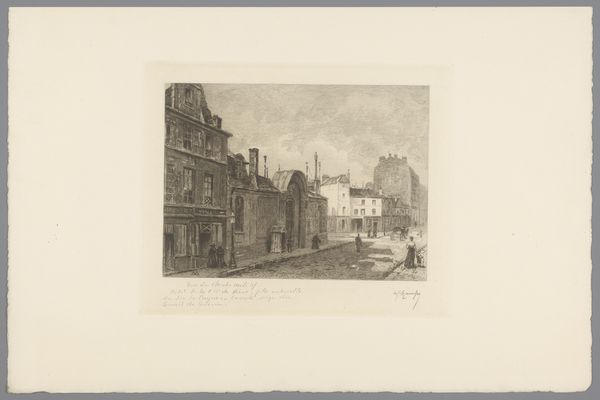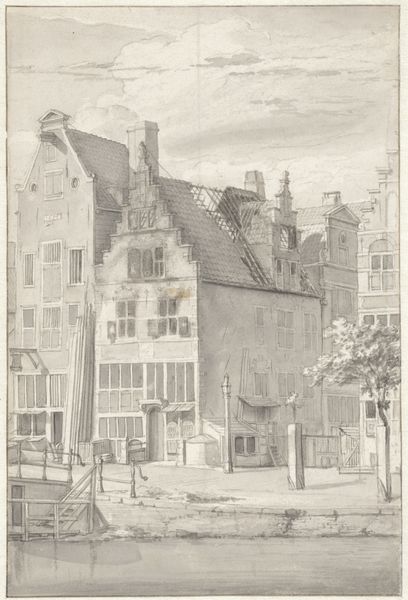
drawing, print, engraving
#
drawing
#
neoclacissism
# print
#
landscape
#
cityscape
#
engraving
Dimensions: height 227 mm, width 274 mm
Copyright: Rijks Museum: Open Domain
Editor: This is "View of a Street in Aberdeen," a print made in 1801 by James Fittler. It’s a pretty busy cityscape, with all these figures in the street… but somehow the muted tones and the somewhat rigid architecture give it a feeling of quietude and order. What do you see in this piece? Curator: The rigid architecture that strikes you is rooted in the Neoclassical style, recalling a desire for order and rationality in a time of social upheaval. Consider, too, that such architectural precision signifies more than mere aesthetic preference. It also denotes a visual language of power, permanence, and civic pride. This cityscape presents a curated vision of Aberdeen, one intended to shape its cultural identity. Does this emphasis on order speak to anything beyond the purely visual? Editor: Hmm, I guess the figures seem to be positioned purposefully. Is that how it reflects cultural identity? Curator: Indeed. Notice how the figures populate the space. They are rendered with careful attention but seem almost secondary to the buildings. Consider how they interact within this carefully structured environment. What does that positioning suggest about the relationship between the individual and society at the time? Editor: Perhaps the print suggests society held more importance than individuality? I can definitely see how the artist carefully selected visual symbols to convey an idea of stability. Curator: Precisely. This print functions as a cultural artifact. It uses visual cues not only to represent a physical space but also to communicate a specific set of values. By examining the visual vocabulary, we reveal cultural memories and societal aspirations encoded within. Editor: That’s fascinating. It completely shifts my perspective from merely observing a street view to interpreting a whole cultural narrative embedded in the image. Thanks! Curator: My pleasure. Remember, every element, from architectural style to the placement of figures, serves as a symbol, revealing a deeper cultural narrative waiting to be deciphered.
Comments
No comments
Be the first to comment and join the conversation on the ultimate creative platform.
